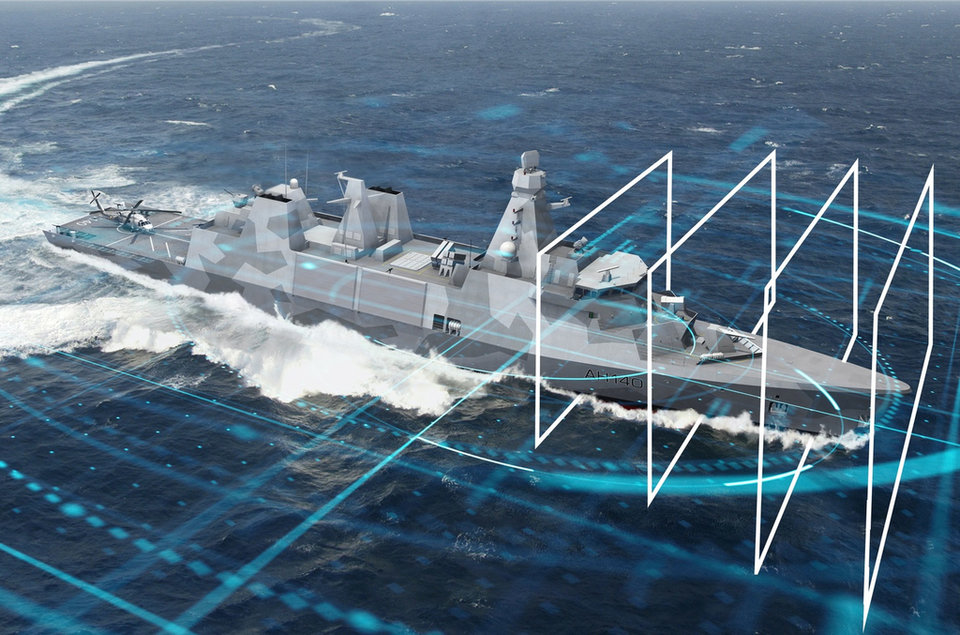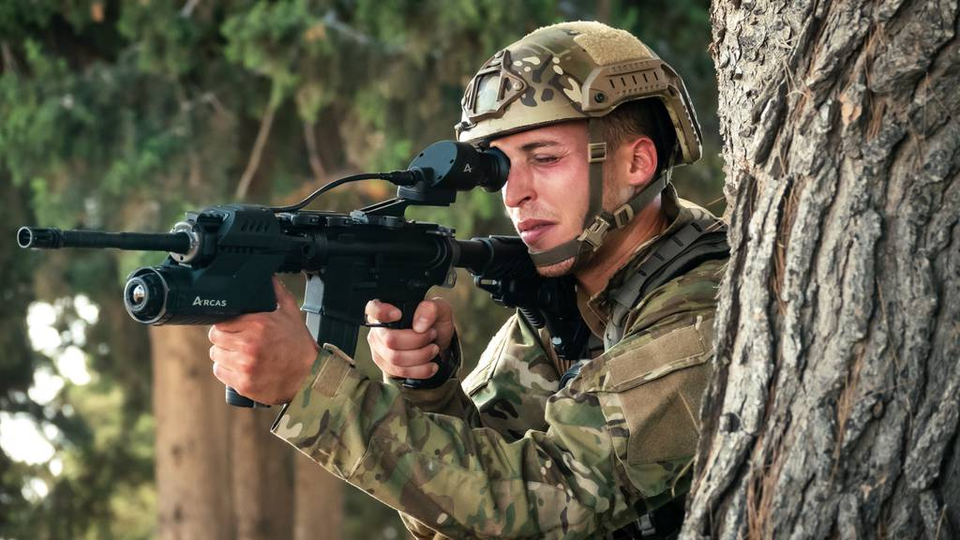Companies
Elbit Systems bolsters UK presence for MOD programmes
Israel-based Elbit Systems delivers technology to international defence programmes and has established a strong UK presence in recent years. Elbit Systems UK CEO Martin Fausset gives Berenice Healey an update on the company’s recent and planned activities supporting the British Armed Forces.
Elbit Systems is perhaps best known for its uncrewed aerial vehicles (UAV), including the tactical operations Hermes series, but they also deliver a range of land and naval systems and electronics. They have grown their UK activities over the past few years in a bid to better compete for UK Ministry of Defence (MOD) programmes. This includes offering industrial jobs and technology transfer and addressing everything from freedom of action to operational sovereignty and security.
“Domestically, we have made significant investments in the last two years to make sure that we're properly configured to have the infrastructure to do that,” says Elbit Systems UK (ESUK) CEO Martin Fausset.
“We have now got 10 sites in the UK and three of those that are on RAF bases. We have a number of companies in the Midlands, one in East Kent, one in London and in the last two years we've invested in the rebuild of a new facility for the Kent site, and we’ve started work on a brand new factory in Bristol.
“The reason we're doing this is because we've now won programmes which require us to increase our manufacturing and assembly, integration and test facilities. And obviously, in doing that, we're going to create good jobs and grow significantly.”
UK contracts and demonstrations
The strategy is working; in November alone Babcock International awarded ESUK a £73m contract to provide electronic warfare solutions to the Royal Navy, as part of the MOD’s Maritime Electronic Warfare Programme, known as Maritime Electronic Warfare System Integrated Capability, or MEWSIC, increment 1.
We demonstrated a system that enables the army to see what a digital backbone, multidomain integration requirement can be.
The MOD has also selected ESUK to deliver the Interim Combined Arms Virtual Simulation (Deployable), a pathfinder project for the British Army’s Collective Training Transformation programme. In addition, the company participated extensively in the Army Warfighting Experiment last year, contributing digital technology and autonomous systems.
“We demonstrated a system that enables the army to see what a digital backbone, multidomain integration requirement can be as a result of bringing in a system from somewhere else, that other countries have got” explains Fausset.
“We provide the things the British Army have planned to get but haven't done so yet. We were also able to show some of our autonomous systems. Elbit has a long history of UAVs, but, of course, the clever bit of the UAV is the payloads and the control systems, not so much the actual aircraft. Those are directly transferable to other platforms; ships, tanks, ground vehicles.”
The technology itself, the processes it uses and the safety measures that need to be in place are common, supporting a relatively seamless knowledge transfer from one platform to another. To that end, ESUK has conducted a demonstration of an unmanned surface vessel for the Royal Navy and the Defence Science and Technology Laboratory to demonstrate its capability.

// ESUK a is providing electronic warfare solutions to the Royal Navy as part of the MOD’s Electronic Warfare System Integrated Capability. Credit: Elbit Systems.
Multidomain integration and training
As promoted in its Integrated Review, multidomain integration is a strong theme for the MOD, and Fausset believes Elbit has an advantage as the parent company has been operating in a similar environment in Israel for 15 years.
“Israel has had multidomain integration in various shapes and sizes and degrees for a long time because they had to,” he explains. “There are lots of challenges and issues that you have to face as you go towards that approach that we know and can offer our experience.”
ESUK has also been involved in technology training for defence, including as a member of the Capita-led Team Fisher that was awarded a 12-year agreement worth up to £2bn to deliver personnel training for the Royal Navy, a programme known as Project Selborne.
“Our role in that programme is to provide simulations and synthetic training updates to the Navy. We'll be building a series of new simulator facilities, and we will be taking over the running of training facilities that exist on various Royal Navy bases,” says Fausset.
“They will transfer the facility and people to us, and then we'll update and modify those systems to meet the navy's future requirements. We fully understand that the navy are using Selborne as a catalyst for the transformation of training. We are challenged by the customer to ensure that we're providing thought leadership and inputs and ideas as to how the navy can transform what they do, using the best technology and training and simulation.”
Battlefield technology
The same simulation expertise will come into play for the £103m contract the MOD awarded ESUK in January to deliver dismounted joint fires integrators.
“Dismounted joint fires is the targeting technology for forward observation parties and joint terminal attack controllers, the people that control air missions,” explains Fausset.
“We have expertise in the subsystems that you need for that; we're very good on command and control, excellent on our sensors and are world leader in lasers. Range finders and targeting equipment you need for that system is something we do, and we've also got the contract for the simulation and training system.
“The first installation has been installed at the Royal School of Artillery at Larkhill and is just about to start operationally.”

// Elbit Systems’ ARCAS is an AI-powered rifle system for snipers. Credit: Elbit Systems
The parent company recently unveiled its artificial-intelligence powered Assault Rifle Combat System, or ARCAS, for snipers that interfaces with the rifle’s electro-optical sight via a helmet-mounted eyepiece to provide real-time actionable combat information. Fausset says ESUK would be happy to make it in the UK if the MOD bought it.
“We recently transferred night vision goggle technology to the UK because we’re the provider of the army's night vision goggles programme which we won a few months ago, with first deliveries due next month,” he says.
Fausset wants all of these UK projects to drive home the message that ESUK is open for business.
“The important thing for us is that people recognise Elbit's here, we're investing quite a lot of money in our facilities and are recruiting lots and lots of people,” says Fausset. “It's a very aggressive growth strategy. We intend to be here, offering our solutions to the various armed services and building a bigger business here.”
// Main image: The MOD has awarded ESUK a contract to deliver dismounted joint fires integrators. Credit: Elbit Systems.